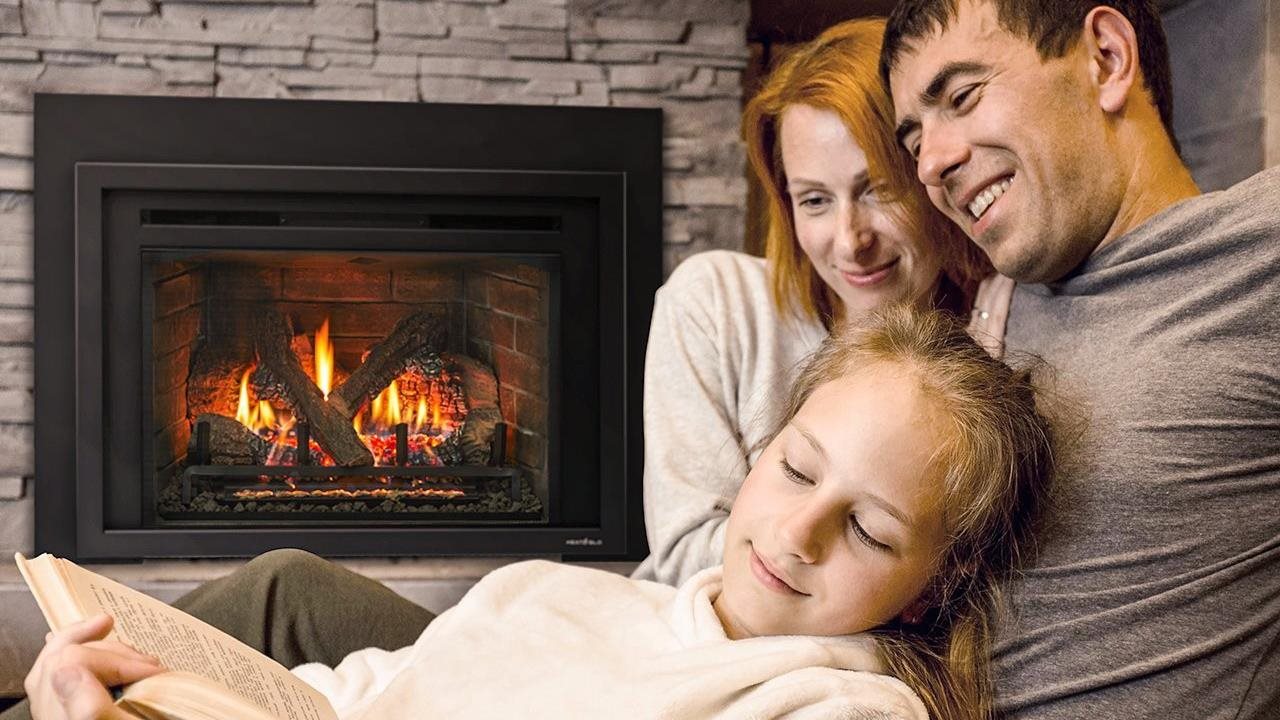
(BPT) – As weather cools and daylight hours shorten, many people naturally spend more time indoors and there’s no place more inviting than the fireplace. The problem is that while a traditional, open wood fireplace offers the ambiance and nostalgia homeowners cherish, they are often dirty, drafty and boast outdated styles.
One simple, affordable way to upgrade and elevate your space is with a fireplace insert. Any wood fireplace is an option for a fireplace insert, a self-contained appliance designed to fit into an existing space. The most popular options are either fueled by gas or electricity, depending on the homeowner’s preference. Many people are looking to eliminate ash and soot, therefore gas and electric inserts are the most popular.
Plus, because fireplace inserts are far more efficient than many older wood fireplaces, they can help you save money while warming a space when temperatures dip.
The Environmental Protection Agency explains the inefficiency of wood fireplaces: “Fireplace drafts pull the warm air up the chimney, causing other rooms to be cooler. If you use central heat while burning in a fireplace, your heater will work harder to maintain constant temperatures throughout the house.”
This is why, for instance, installing a gas fireplace insert within an existing fireplace opening significantly improves the heating power and efficiency. The gas fireplace insert is designed to contain and radiate heat back into the room, rather than sending the majority of that heat up a chimney flue.
“Any fireplace insert will improve the efficiency since there is no longer an open chimney to the outside of the home. With a gas fireplace insert for example, you can boost heating efficiency from 15% with wood to around 70%. This means more fuel is converted into useable heat and you stay warmer,” said Randy Wendolek, hearth expert with Heat & Glo.
He also points out that if a homeowner’s current chimney does not meet requirements for burning wood, it’s simple to install an insert with venting liners, and therefore they would no longer need to fix the chimney, which can be costly.
In addition to improved heating efficiency and reduced cost, a gas insert enhances ambiance by updating the space while reducing clutter and increasing wellness, as there’s no heavy wood to haul or stack.
How does it work? In its simplest form, a gas fireplace insert fits inside your wood-burning fireplace opening, and is fueled via a gas line, bringing instant warmth into your home at the touch of a button. For homeowners without natural gas service, a liquid propane (LP) tank can be installed and used to fuel the fireplace. Vented fireplace inserts utilize a flexible, aluminum flue liner through the existing chimney, and many gas inserts have a blower that helps direct the hot air into the room through the insert’s front vents.
While gas inserts are a popular choice, electric inserts are another option for renovating traditional wood fireplaces that are typically the easiest to incorporate. With electric fireplace inserts, instead of a live flame that you normally get with a gas insert, the flame effect is created by LED lighting to provide the fire appearance.
Unlike gas inserts, electric options do not require a gas line and ventilation. Plus, electric fireplace inserts are shallower, so if depth is constraining your ability to install a gas fireplace insert, they are a great alternative.
Both gas and electric fireplace inserts are also available in a range of sizes with modern designs that will refresh any room. You can learn more and explore a variety of styles and options at HeatNGlo.com.
